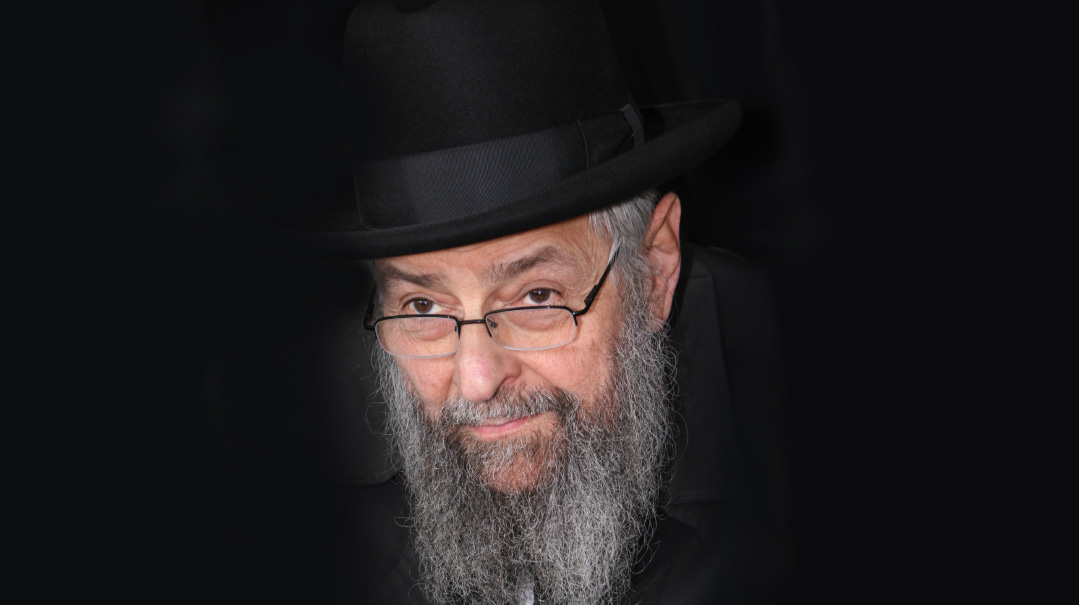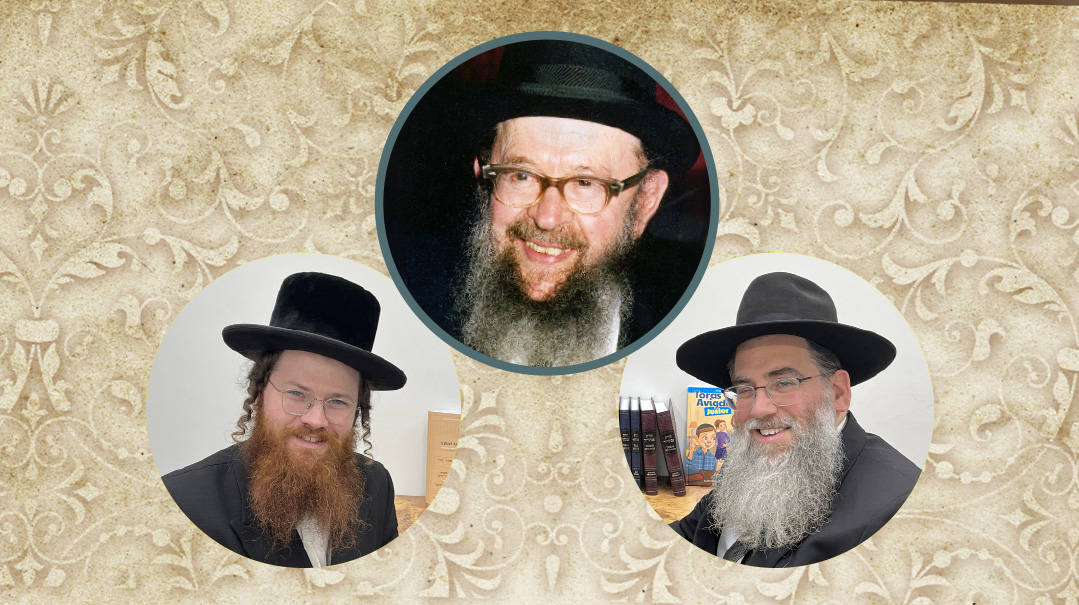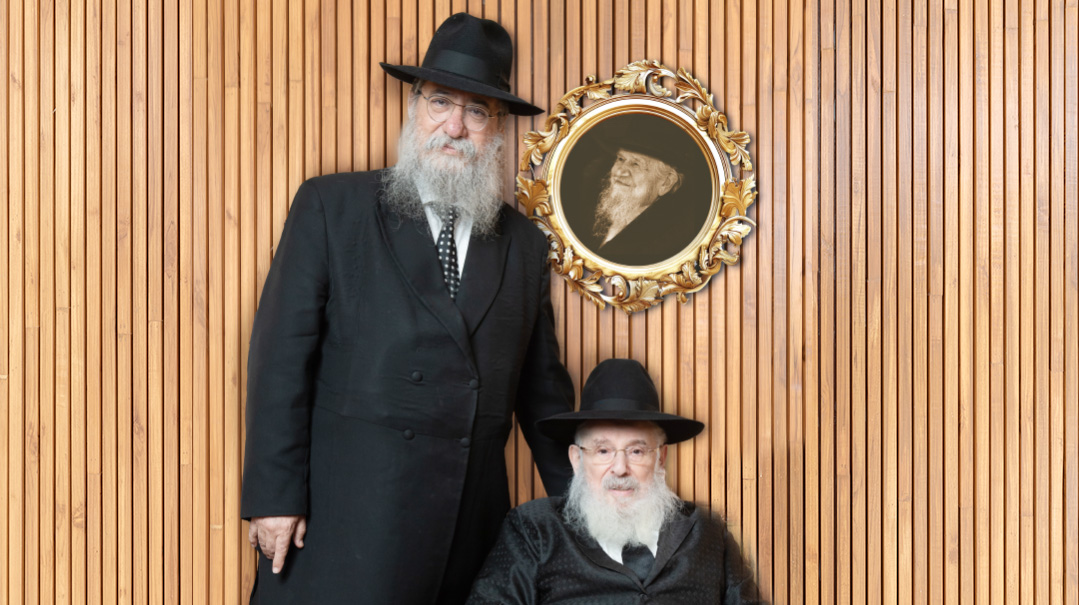Red Light, Green Light

Given the vast amount of energy we invest into shidduchim, it’s no wonder singles and their parents tend to analyze, and overanalyze, every bit of information

H
ours of research, dozens of phone calls, endless agonizing...
Given the vast amount of energy we invest into shidduchim, it’s no wonder singles and their parents tend to analyze, and overanalyze, every bit of information gleaned over the course of an hours-long date.
Combine nerves, differences in conversational style, and the lack of context inherent in a date, and it’s all too easy to mistake the inconsequential for the life-altering, or to miss the forest for the trees.
Here, four experts on relationships advise us how to differentiate between the red lights that should stop a single in her tracks, and the green lights that encourage her progress toward her ultimate destination
Meet the Experts
Rabbi Shlomo Slatkin
a noted relationship expert, is a Licensed Clinical Professional Counselor, a Certified Imago Relationship Therapist, a rabbi, and a father of five. He’s an Advanced Clinician in Imago Therapy.
Rabbi Doniel Frank
directs M.A.P. (Motivation and Performance) Seminars, Inc., a nonprofit organization that helps people create, design, and launch their life plans successfully. He also maintains a private practice in marriage and family therapy and is a dating coach.
Esther Gendelman
MS, LPC, CPC, is a licensed psychotherapist and certified professional coach who specializes in working with relationships. A veteran educator, speaker, and shadchan, she is the co-author of book The Missing Peace by Menucha Publishers.
Rosie Einhorn
LCSW, a licensed psychotherapist, has worked extensively with singles in her private practice, and presented hundreds of programs throughout North America, Europe, and Israel for single Jewish men and women and their families, friends, and communities.
Chilled or irresponsible?
When he reported on Ari’s learning, the rosh chaburah praised his intellectual abilities and emphasized Ari’s enthusiasm, which we took to be a compliment.
Now that I’ve been out with Ari three times, and he hasn’t managed to show up on time even once, I’m not so sure that it wasn’t just an attempt to come up with something nice to say. When the shadchan, who’s my aunt, delicately broached the subject with him, Ari’s response was, “Look, I’m a laid-back kind of guy.”
Laid-back seems to be his general term that describes someone who often davens at the minyan factory’s latest Shacharis, can forget to bring his wallet on a date and misplace his parking stub, but who also doesn’t bat an eyelash when Waze goes berserk and sends him in futile circles around Lower Manhattan.
Ari’s clearly good-hearted. He’s gentle and funny. But should I be concerned that he can’t manage the rigors that adulthood will demand?
Yellow Light
Mrs. Esther Gendelman
This is a tough dilemma, because while you see his good qualities, you also see a lack of responsibility.
What you’re perhaps forgetting is that discipline and structure, on the one hand, and warmth, generosity, and an easygoing nature, on the other, are often opposite sides of the same coin. You seem to be looking for a young man who scores high marks in qualities that derive from very different strengths.
Ari might never have the meticulousness to become an accountant, but that’s fine —every person has strengths in one area and corresponding weaknesses. If his strength is what Rav Shlomo Wolbe called “zriyah — planting” — the organic, nurturing processes — he’ll likely be weaker in “binyan — building” strengths, such as routine and discipline. But a good person can use his strengths to compensate for his weaknesses. He could very well surprise you and rise to the occasion, being the warm, comforting presence that everyone wants to lean on in a time of crisis.
In practical terms, what you’re missing is the confidence that Ari is a baal achrayus.
Don’t make the mistake of putting too much stock in the lighthearted response he gave the shadchan; talk it over with him to reach a fuller understanding. On the next few dates, open a gentle, non-confrontational discussion about his life experiences. How has he been there for friends or family in their times of need? Whom does he depend on in his family? Whom does he admire as an example of a good husband and father?
Ari seems to be open about his personality, so that should help. Listen to his aspirations: Does he intend to be his family’s anchor, or does he expect to sail through life in the same carefree way he does now? What you’re looking to hear is that responsibility and maturity are qualities that he can touch, even if he’s not quite there yet.
If he dismisses your concerns, saying, “I am who I am; I’m l’maaleh min hazeman; I don’t believe in being inhibited by schedules,” then he’s likely not the one for you, based on the concern I hear in your tone.
Red Light
Rosie Einhorn
This is a personality type, and it’s not going to change. For this to work, you’ve got to be okay with this personality. When he forgets his wallet, can you shrug and say to yourself, “Oh well, he’s just a laid-back kind of guy”?
In shidduchim, you need to know yourself well. If you’re a punctual sort of person — and from your question, it sounds like you are — you may be fighting constantly if you marry a laid-back fellow like Ari. A type-A personality won’t go for his happy-go-lucky style; you’d be setting yourself up for difficulties.
Ari might make a fine husband for a more chilled type of person, but don’t think you’re going to change him. He’s showing you who he is, and who he will continue to be once you’re married. Take him at his word.
Clueless or Callous?
When I ask David questions about his mother’s or sisters’ jobs, David never seems to know much about them. “I don’t do girl stuff,” he explains. His nieces and nephews, too, seem to be collectively written off with a,“They’re cute. Noisy bunch of kids.”
David can talk entertainingly and at length about his job, and he seems genuinely interested in my opinions on current events and hashkafic issues. And yet, so many things that matter to me — my relationships with family, my art, the Rosh Chodesh gatherings I organize — are apparently feminine frivolities that don’t seem worthy of his attention at all.
I’d love for him to show interest in my job in special education, which is an important part of who I am, but maybe I’m expecting too much. After all, men have different interests, so he’ll never fill the role of my female friends, right?
Green Light
Rosie Einhorn
As with any discussion of shidduchim, we need to start from knowing who you are and what your priorities are. If you’re looking for a best friend, then this is clearly not the man for you. But if you care more about relating to your husband on an intellectual level — then this sounds great!
None of the examples you mention are, in and of themselves, concerning. A young man doesn’t need to share his wife’s interests. As long as he shows a healthy respect for his dating partner’s pursuits and opinions, he can make a wonderful husband.
A wife needs to know that her husband is proud of her; it’s not important for him to understand the specifics of what she does all day. Sharing the details of workplace drama is what female friends are for.
As long as he’s not showing a lack of respect for you, and he’s supportive of you doing the things you find fulfilling, it’s fine if your job is uninteresting to him.
It only becomes a problem if you really want to share these things with your husband, and find that he simply can’t, or won’t, listen to you. If it’s important to you to be able to share the minutiae of your day, then this may not be the man for you — but it’s not an inherent red flag.
The one area I’d recommend pursuing further is his flippant attitude toward the children in his family. How does he feel about kids in general? What does he anticipate his role being when he has his own children, im yirtzeh Hashem? As long as you feel that he’ll be a caring, involved father, and a respectful husband, then it’s absolutely fine if the things that excite you don’t interest him.
Yellow Light
Rabbi Shlomo Slatkin
People like to stereotype men as being macho and uninterested in “girl talk,” and while there’s truth to that, there are plenty of men who are caring and solicitous about what goes on in the lives of the women in their life.
That said, David’s more “male” communication style doesn’t have to be a deal-breaker unless it really bothers you. To see if it’s a real problem, you should talk over the issue and explain how important it is to you to share the topics that are close to your heart. Even if it doesn’t come naturally to him, a sensitive person should show a willingness to try to grow as a person, and deepen his appreciation for that which is important to you.
By exploring the issue together, you should be able to determine if it’s simply a question of diverging interests — which are totally normal and healthy — or whether David is actually a self-absorbed person.
If he’s open to trying to understand you, and willing to make an effort to stretch past his comfort zone for the sake of the relationship, it’s quite possible you’ll be very happy together.
While you’re certainly right that a spouse won’t necessarily fill all your needs for friendship, you do want to be able to include him in your life. An open and honest discussion of the pattern you noticed should help you understand if this is right for you, and if he’s receptive to your needs.
Even if you find that he doesn’t have the capacity to share your excitement in important areas, it may still be a fine shidduch; not everyone needs to be able to share everything in her life with her husband. But if sharing freely with a spouse is vital for you, you shouldn’t deny that perfectly legitimate need.
Principled or Arrogant?
Since I was in junior high, I’ve always known I would only marry a boy with a strong connection to daas Torah. Zev is fiercely attached to his rosh yeshivah, and won’t make a move without being sho’el eitzah.
I admire Zev’s confidence in his derech. At the same time, I find it disturbing when I hear Zev speak dismissively of rabbanim of other segments of Yiddishkeit. “What’s important is that you have a moreh derech,” maintains Zev. “Only someone very naive, or a person who’s not solid in his hashkafos, will listen unquestioningly to everyone who has ‘Rabbi’ in front of his name. A ben Torah has to be discerning.”
I can’t argue with that, but when I hear Zev complaining about the “over-the-top” tzniyus measures a local rav has enacted at his shul’s events, I wonder if his intolerance of others’ opinions stems from clarity of thought or from arrogance, and how it will impact our future home.
Red Light
Rabbi Doniel Frank
Very often, singles who are looking for a specific quality take a myopic view of the person in front of them. In your search for someone who submits to daas Torah, don’t overlook the context in which he presents his allegiance to daas Torah. Let’s put aside the philosophical issue, at least momentarily, and evaluate the middos Zev is showing.
What kind of middos does it show that in defense of his hashkafic positions, he denigrates others? Is he a dismissive, contemptuous kind of person? If he is, that will inevitably affect his wife and family, as it will come out in all his interactions.
It’s possible that Zev may just be a bit immature, or that there’s some other innocuous explanation for his behavior. It’s worth bringing the topic up on a date to see how he responds when challenged about his approach.
(While this may not be the case here, it’s also worth noting that some have a narcissistic tendency to idolize their own: for example, their rebbi is a malach and everyone else is flawed.)
I wouldn’t ever presume to tell someone what kind of man she wants to marry, but I would encourage you to separate the issue of daas Torah from the character issue here, and decide if these are the middos you’re looking for in a husband.
Red Light
Mrs. Esther Gendelman
Strong opinions about right and wrong are second nature to a yeshivah bochur, who, if you think about it, spends his entire day arguing about fine points of truth.
But what you’ve depicted here is more than a passion for accuracy; you’re describing a middah of leitzanus, a scornful attitude toward anyone who thinks differently. This leitzanus stems from a need to feel superior; it sounds as if Zev is convinced he knows better than everyone else.
It would be one thing if Zev said, with humility, that in today’s complex world, one can’t afford to shop around for daas Torah, and must have a single standard to adhere to. That would be fine. But when it degenerates into making fun of others whose standards are different — there’s no room for that in terms of middos.
You want a husband who will respect your opinion, and leitzanus is a red flag with regard to shalom bayis. If he mocks others in the guise of frumkeit, chances are he’ll end up ridiculing anyone he disagrees with — his wife included.
Of course, we need to be sensitive to the fact that people are different, and so are family cultures and environments. There is the possibility that the condescending attitude is not his true nature, but more a product of his immersion in the world of “yeshivishe hock,” and he’ll outgrow it as he matures. But proceed with caution —leitzanus is a toxic quality in a marriage.
Caring or Controlling?
Ezra is Very Capable. He knows his way around the hood of a car, is up-to-date on the best credit card offers, and has connections with all the right people. I’m sure about this, because he has already told me why I should switch cellphone carriers, how my parents’ electrician messed up their HVAC and whom they should hire instead, and the most effective way to negotiate a raise from my boss, who is Clearly Underpaying Me.
The niggling doubt crystallizes into concern in my mind when I ask him to drop me off outside the entrance to my development (I don’t need the neighbors snooping). Ezra insists on gallantly delivering me to my doorstep. It’s clear that Ezra thinks I should feel Protected and Taken Care Of, but I wonder: Is Ezra being caring or controlling?
Green Light
Rabbi Shlomo Slatkin
Some people are know-it-alls. That can be a sign of immaturity, or it might just be something he needs to work on when he enters a relationship.
You can talk to Ezra about this. It might be an ongoing discussion, but it can work if he’s willing to put in the effort to understand your point of view. That’s what relational maturity is about — acknowledging the other person, even if you disagree with him or her.
Most people have issues of some kind, and some people have more than others. Nobody’s perfect. Most things can be worked on, if both partners willing. So if he’s a great guy, this tendency to be overbearing doesn’t have to be a deal-breaker.
It’s only a serious issue if he’s making unilateral decisions for the relationship, like where to get married or send kids to school, and doesn’t care what you have to say.
At the same time, it’s fine to say that a particular problem is one you can’t live with. Bottom line: If he’s otherwise perfect, except for this one issue, I’d recommend trying to work on it. But if you don’t feel strongly about him, and this really bothers you, then don’t be afraid to walk away.
Yellow Light
Rabbi Doniel Frank
This sounds like a very particular personality type: Ezra’s a macher. He likes to know things and share his knowledge. Personality types are like flavors; some people will like them and some won’t, and there’s no right or wrong answer. But nothing here really scares me.
The one potential problem is the incident you mentioned, where he overrode your preference because he felt he knew better. That made you uncomfortable, and you should trust your instinct.
Check it out further. There’s no shame in going back to the references, now that you have more specific concerns to research, and asking them, “Does he come on strong in relationships? Does he leave space for other people?” Depending where you are in the shidduch, you can communicate your discomfort to the shadchan, or directly to Ezra, and see how he explains his behavior — does he understand your concern, or brush it away?
It does sound like he’s being himself on dates, not being devious or trying to hide his true colors. So watch for signs: Does he make room for you in the conversation? Do you feel like you have space in the relationship? If he’s actually controlling, you’ll probably see it again.
More likely, you’ll have to decide if “outspoken, well-intentioned macher” is a flavor that appeals to you.
(Originally featured in Family First, Issue 578)
Oops! We could not locate your form.












